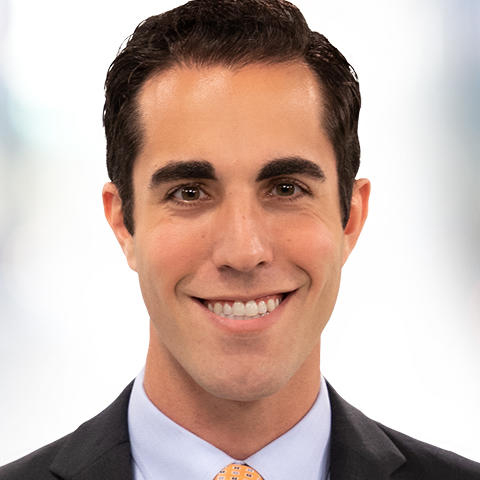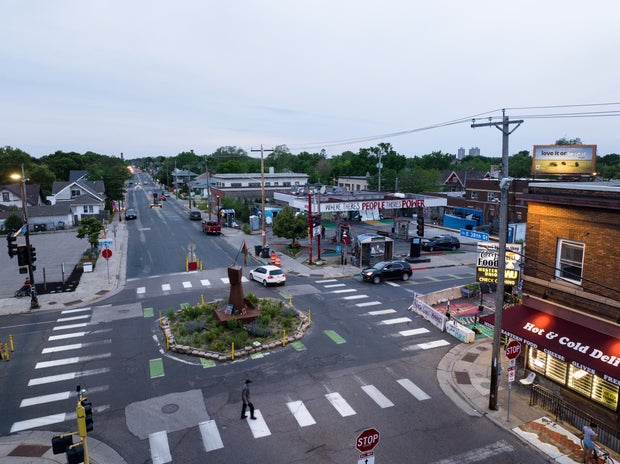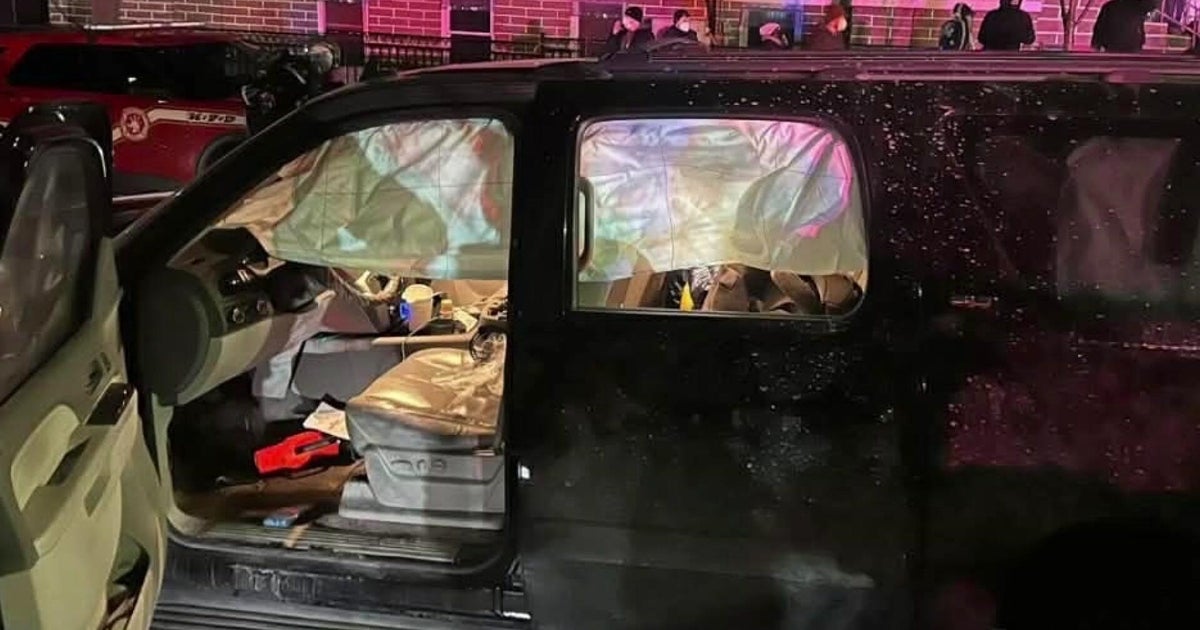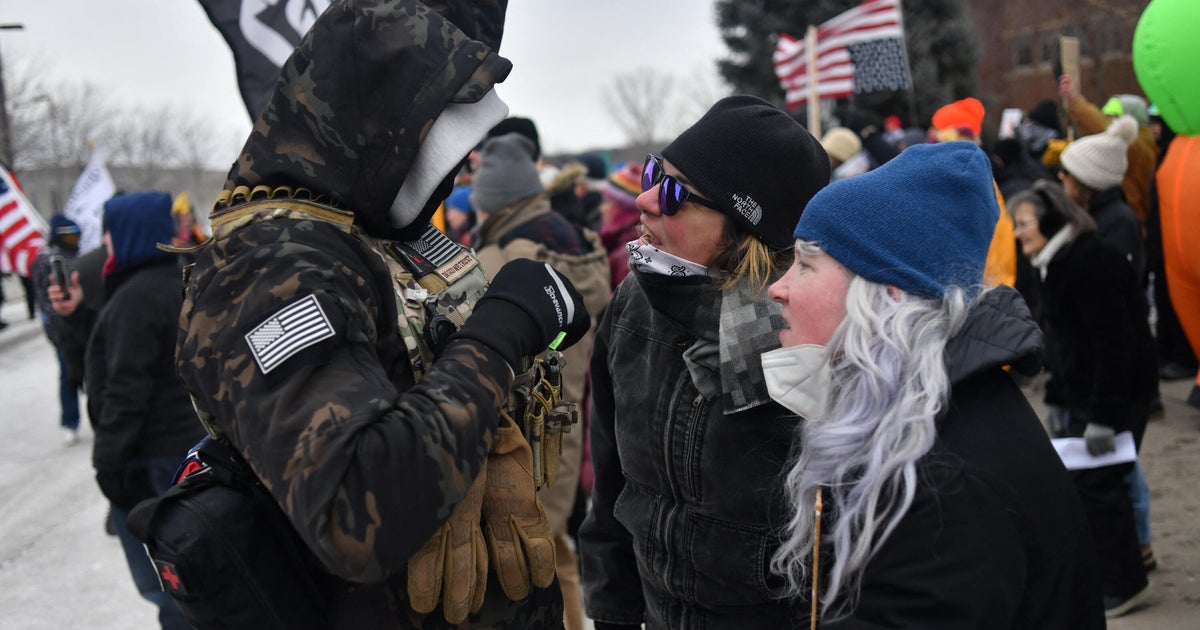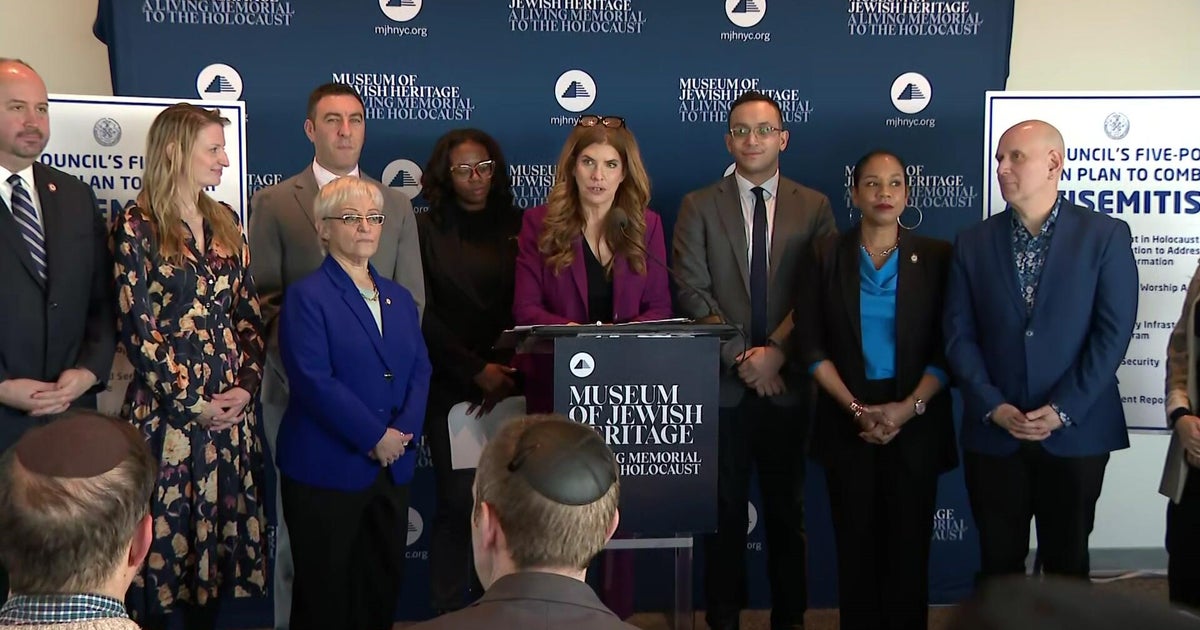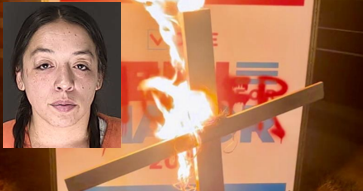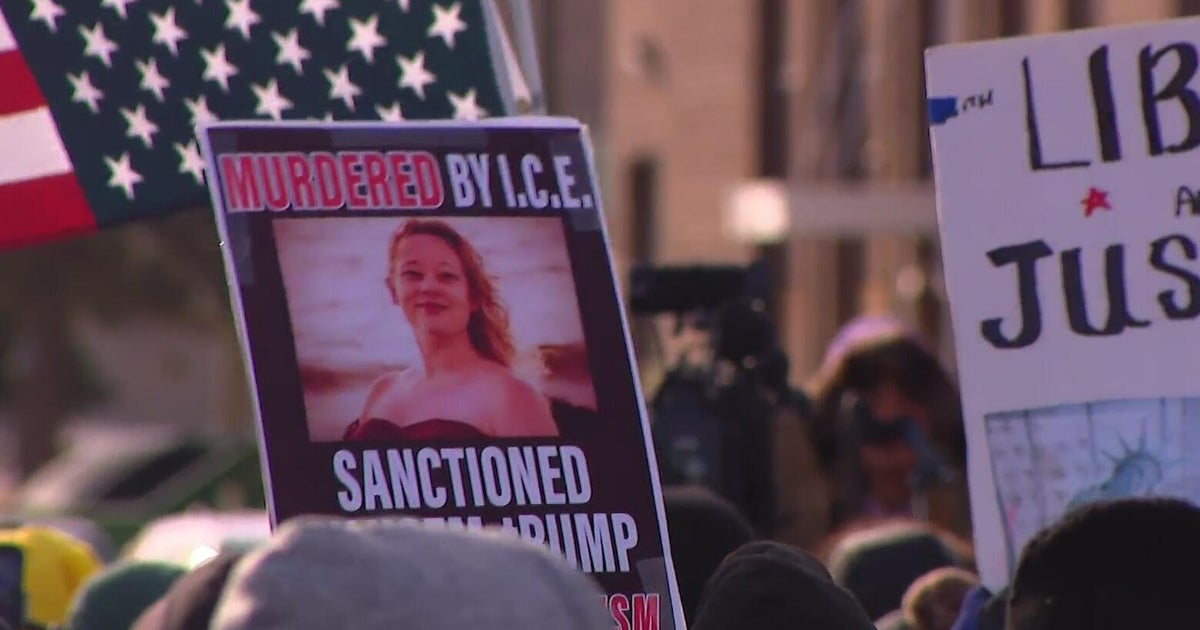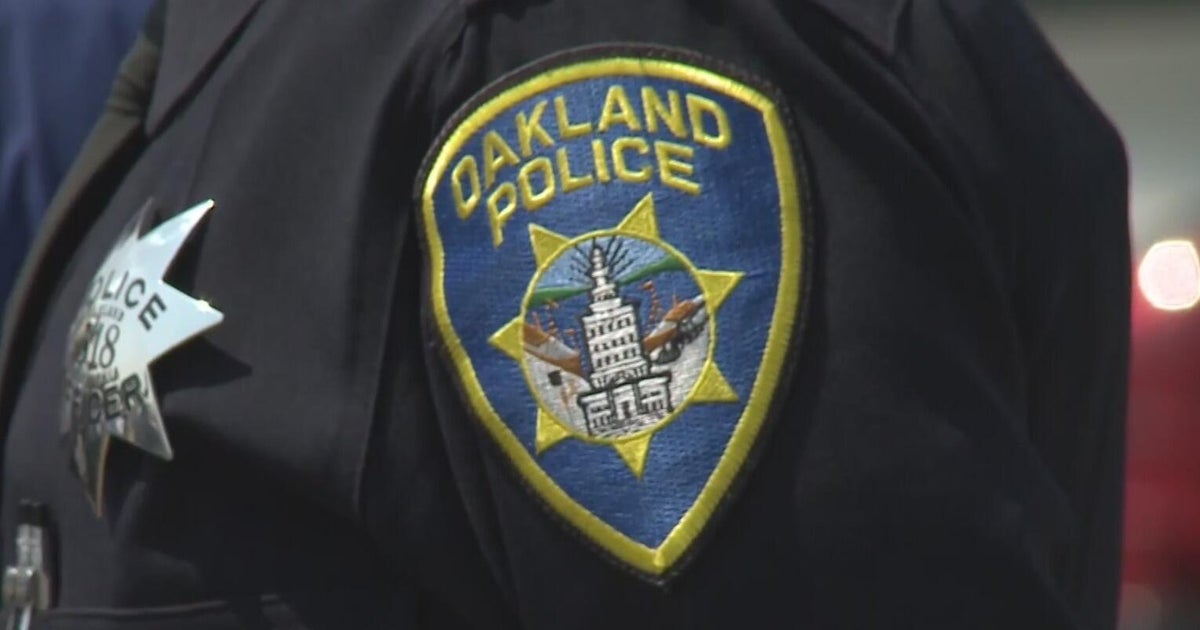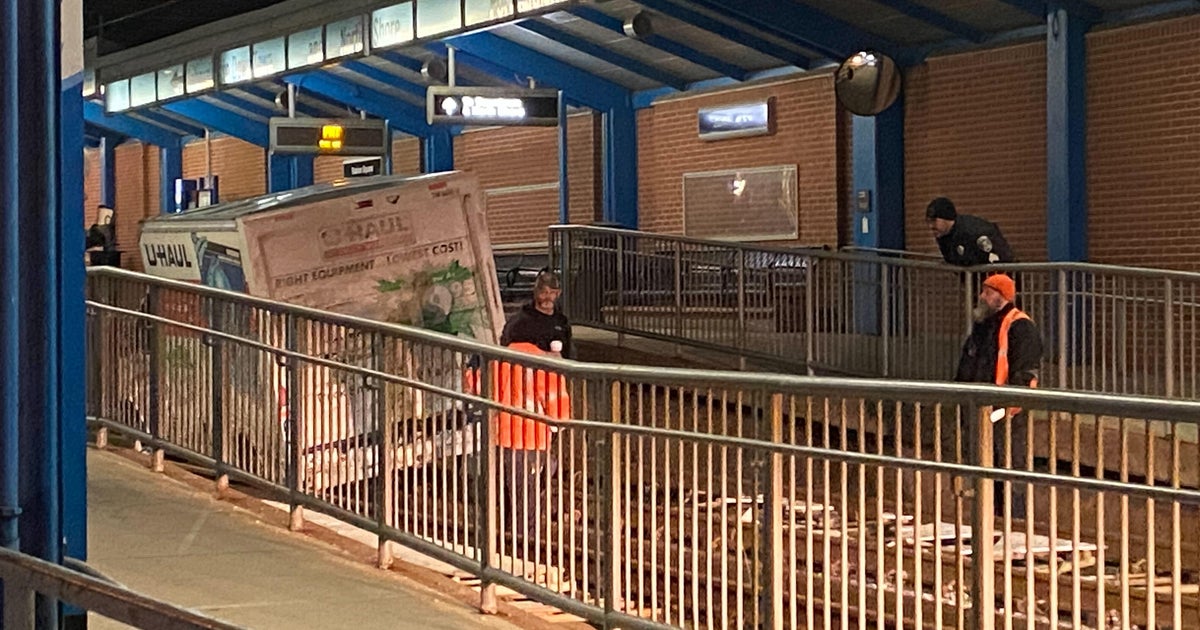Mpls. City Council advances plan for pedestrian plaza at George Floyd Square with override of mayor's veto
Minneapolis will continue exploring a plan to turn the intersection where a police officer murdered George Floyd into a pedestrian plaza after the City Council on Thursday overrode the mayor's veto of the project.
The Council voted earlier this month to approve further study of a pedestrian-focused concept at East 38th Street and Chicago Avenue, also known as George Floyd Square. Mayor Jacob Frey later vetoed the move, saying the plan would "delay any meaningful progress for at least a year" and could risk never actually coming to fruition.
The council voted 9-4 to override Frey's veto, saying it has the support of both community members and Floyd's family for the plan.
"We are at a crossroads, and this city must choose justice over convenience," said Councilmember Emily Koski, who voted in favor of the override. "George Floyd Square is not just an intersection. It is a memorial. A place that tells the world who we are and what we stand for."
Frey, on the other hand, says nearby property owners oppose the plan and would not approve it, which is required by law. He alleges the move will cost taxpayers an additional $500,000.
"The Council's decision is a betrayal of the community's wishes and a colossal waste of time and tax dollars," Frey said. "Why the Council is content to let this site sit idle, without any meaningful development and no legitimate plan, is beyond me. Our city staff have worked tirelessly alongside the community to bring forward a thoughtful, community-centered vision. Yet, this plan is being ignored by a small minority, which is simply not good governance."
According to the council, the pedestrian plaza plan would protect the memorial to Floyd at the intersection, as well as "allow for plantings, trees, and stormwater treatment areas and prioritize traffic calming, safety, and accessibility improvements."
Frey previously said he does not oppose a pedestrian-focused concept, but that "the community does not want it." He accused the council of "attempting to manipulate the process" and asked them to instead pass a "flexible street option" that would allow for transit to continue in the corridor.
"I'd love to see vibrance, vitality, while also honoring the tragic murder of George Floyd," said Ace Rice, the owner of the new PLOT Gallery at the Square.
Rice grew up nearby and feels the status quo doesn't match the spirit or strength of the neighborhood. He's in favor of a more permanent memorial and continuing to allow vehicles through the intersection.
"In order to see small businesses thrive, the employees thrive, we would need to see the street remain open," Rice said.
He says the "overwhelming majority" at the city's four public input meetings favored the so-called "flexible" option: keeping the road open with the ability to close it for events.
"When it was closed, it wasn't as safe as people imagine," said Steve Floyd with Agape Movement, a nonprofit with offices at the square. "As long as the Square was closed, there were gunshots every night."
Last year, an independent survey by the Center for Urban and Regional Affairs at the University of Minnesota received nearly 6,000 responses. More than half of those lived within four blocks of the square.
Results showed about 70% preferred full transportation access. Among the immediately surrounding neighborhoods, it was about 65%.
"The people have spoken and they've told you they want a flexible plan," said Bridgette Stewart with Agape Movement.
But with the process now dragging out even more, some neighbors feel ignored.
"The neighborhood, I can tell you, is tired of being asked what they want," said Neal Baxter, who lives nearby. "If nobody cares [to listen], why ask?"
Since former Minneapolis police officer Derek Chauvin murdered Floyd at the intersection in 2020, it has become a gathering place for Floyd's friends and family members, as well as the community at large and those who oppose police brutality nationwide.
Local business owners, however, have alleged crime has spiked in the area and its occupants have turned it into a "no go zone" for police. The city has faced multiple lawsuits over the area, one of which was dismissed.
The city has been reckoning with the future of the intersection for years, offering several opportunities for the public and business owners to provide feedback while considering multiple different plans.
